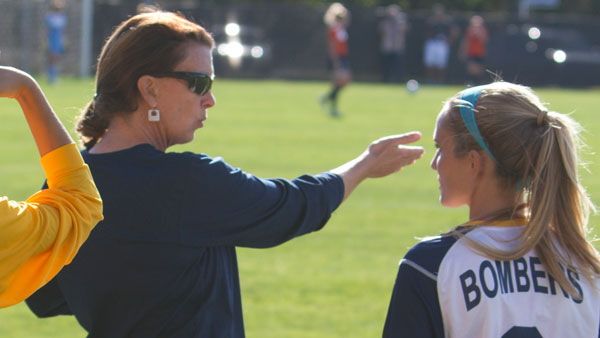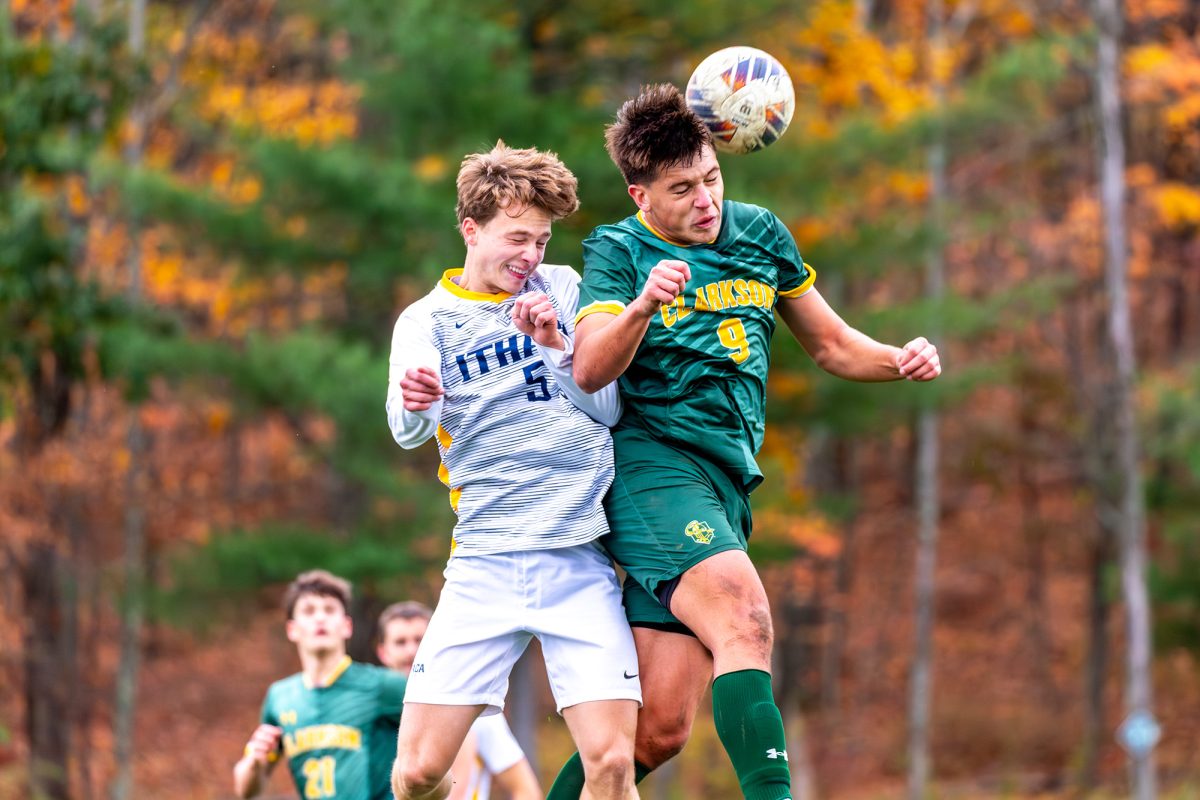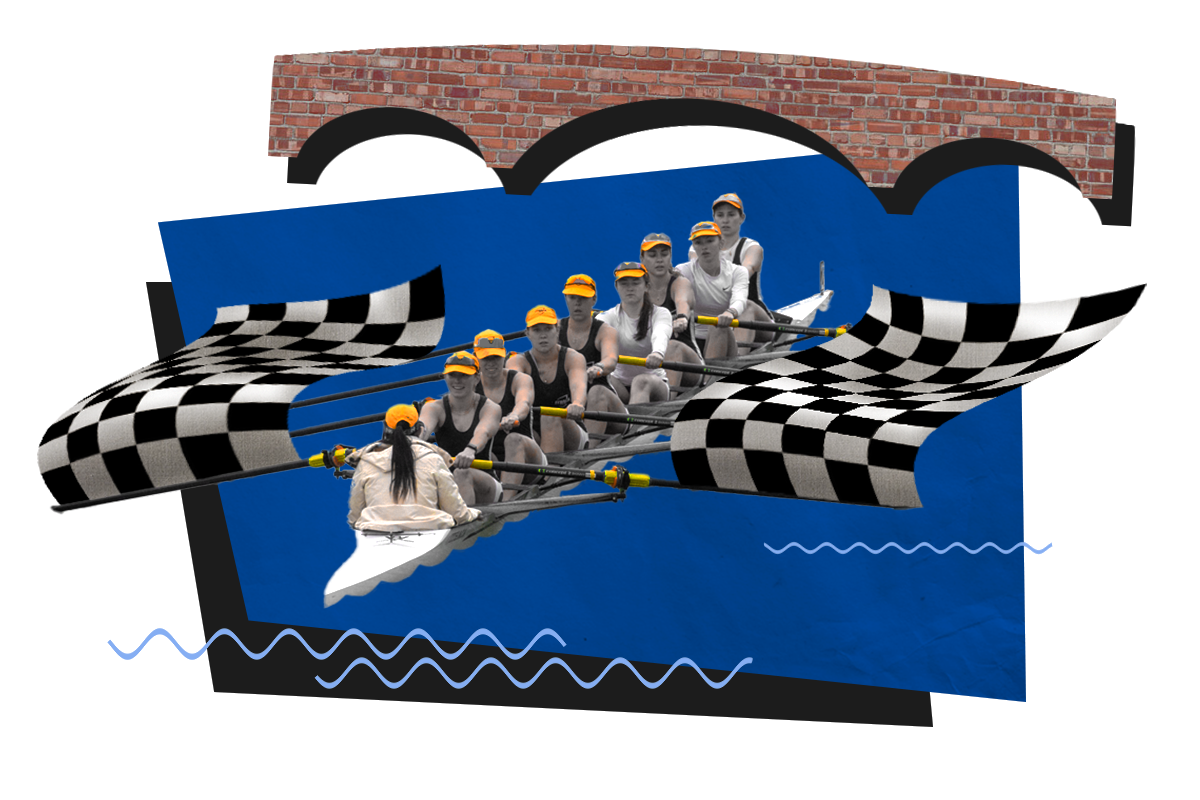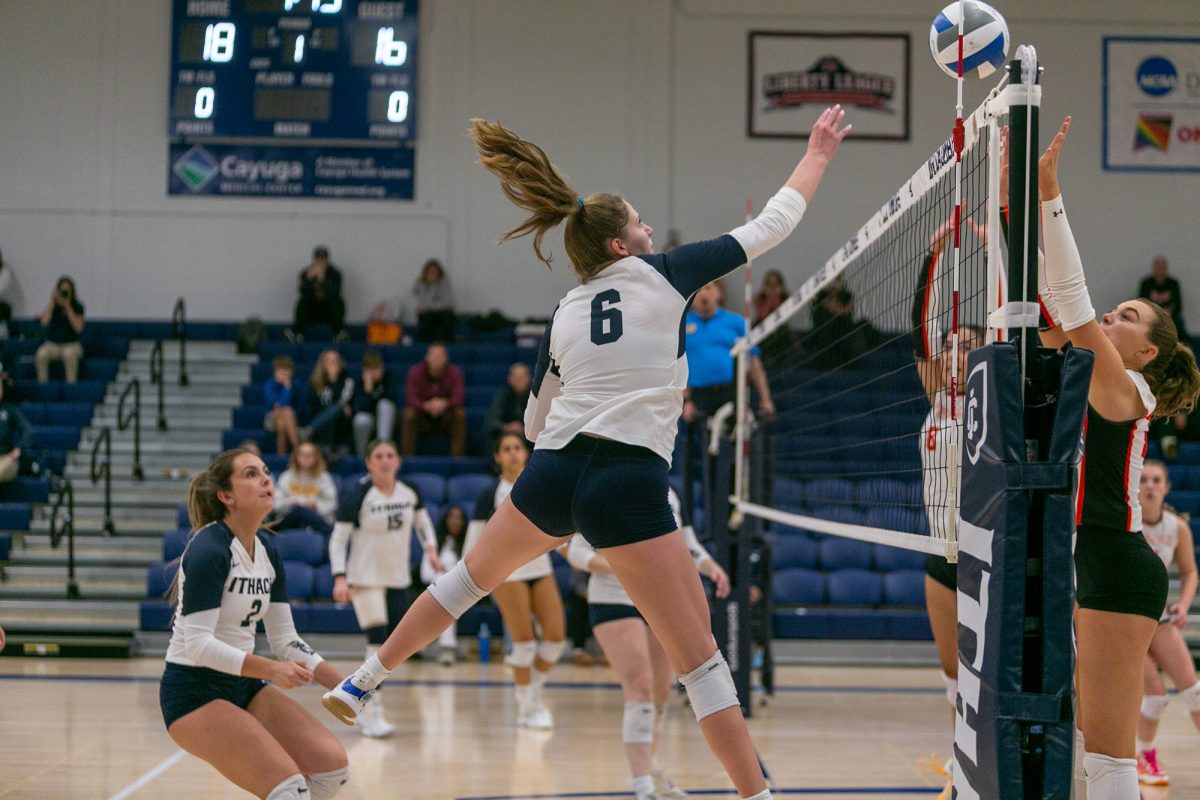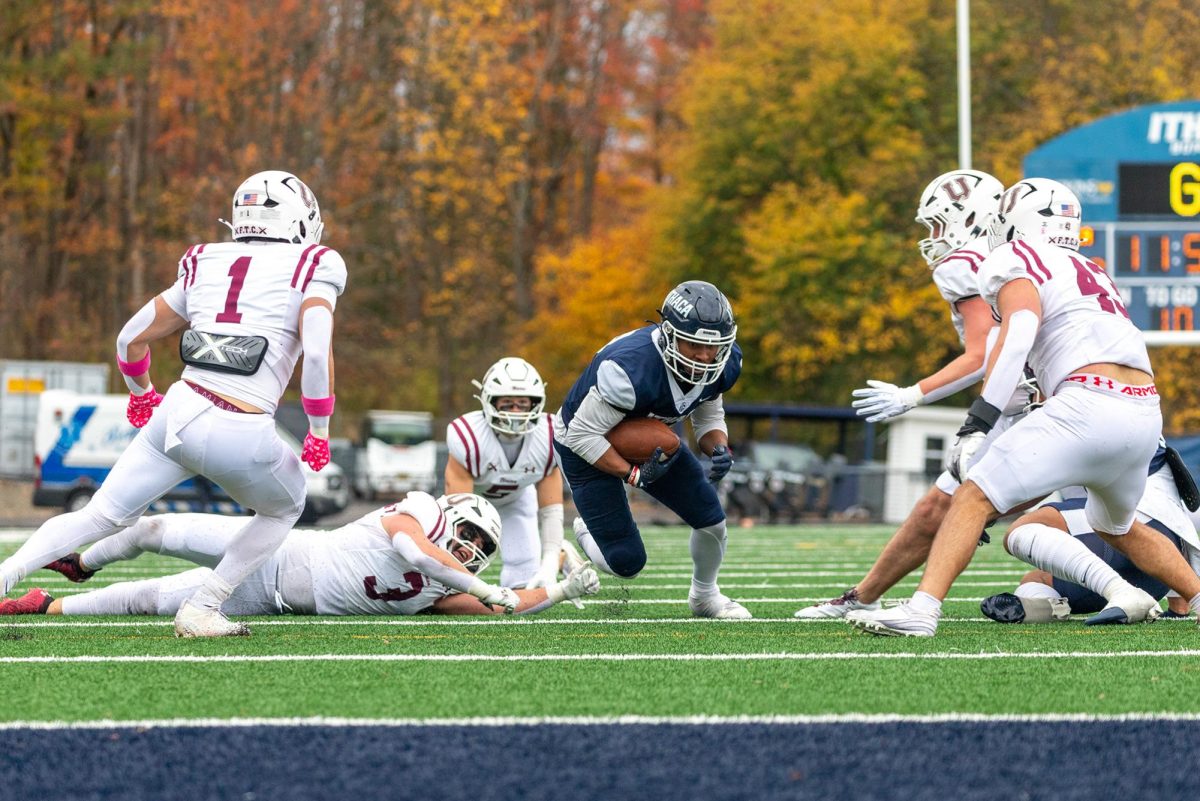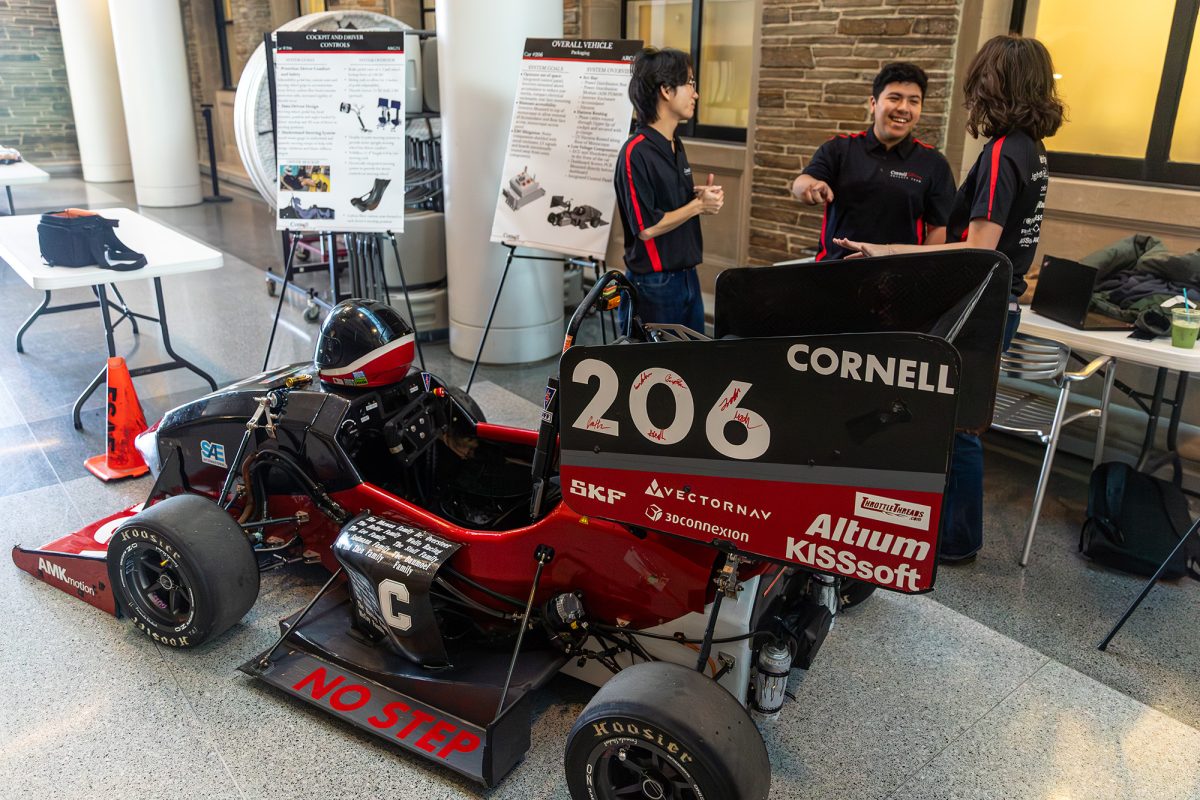A critical first step in forming any championship team is the recruitment process, a fact well known by Mindy Quigg, the women’s soccer team’s head coach. The Bombers are currently ranked eighth in the nation due in part to Quigg’s ability to foresee and harness this talent.
The recruitment process works in two ways. First, high school students or clubs invite the college to see them in action. When the players contact the college, Quigg or her assistants attend the game then call the players to give feedback on their performances.
“This is usually the best-case scenario, because they are already familiar with the cost of the college, which is the biggest deterrent for people to come here, because we don’t offer [athletic] scholarships,” Quigg said. “We have to look for people in a geographic area that financially can afford a private college.”
The college plays in Division III, so it is not allowed to give out athletic scholarships like Division I and II schools do.
The second part of the recruitment process requires Quigg and her assistant coaches, Jeff Long and Carrie Bonus, to travel to find potential talent.
During the spring and summer, Quigg spends her days watching games and taking notes about the players who have expressed interest in the program. Meanwhile, one of her assistant coaches travels to another location to do the same. Their goal is to watch and collect information on as many players as possible.
“I pay attention to different factors, such as technical ability on the ball and size,” Quigg said.
Quigg has been involved in the recruitment process since she became head coach in 1994. Quigg said she travels outside the East Coast just once every three or four years because of the college’s limited budget. Quigg usually attends six tournaments on the East Coast, which she considers a strong recruiting area.
Senior back Alex Liese, who is from Massapequa, N.Y., was contacted by the soccer program during her junior year of high school. She said Quigg’s recruiting style helped her decide to attend the college.
“The big thing about this school is that I knew they were interested in me, but they did not push me,” Liese said.
Sometimes competition with other schools that offer scholarships is a challenge for Quigg. To overcome competitors, she adopts her own strategy.
“I just try to really sell them Ithaca College academically, because it is a good place to study and also to live,” she said. “However, there are several players on our team that were offered Division I scholarships, but they chose to play here because of our education and our program.”
Freshman forward Holly Niemec said the academic aspect of the college was critical in her decision to attend.
“I wanted to make sure that I wanted to go to school not just to play, but because I actually liked the school itself,” Niemec said. “Coach Quigg wanted to get to know me through the process, which really helped because we had that connection with each other.”
Niemec is from Wilmington, Mass. She had never heard about the college before the Bombers’ former assistant coach Kelly Gannon unexpectedly emailed her the day after a tournament Niemec played during her junior year on Long Island, N.Y.
After receiving the email, Niemec became more interested in the women’s soccer program and Quigg. She also began looking into the college’s academics rather than just the team itself.
“I looked at the Park School and found I was interested in the [integrated marketing communications] program,” Niemec said. “So I contacted Coach Quigg again, and I came to visit. She was very helpful and let me meet the team, see them play and stay overnight with some players.”
What the players seem to recall most is Quigg’s approach during the recruiting process.
“She was very honest,” Liese said. “Coach Quigg wanted for me to choose the school that was best for me, whether it was Ithaca College or not.”


